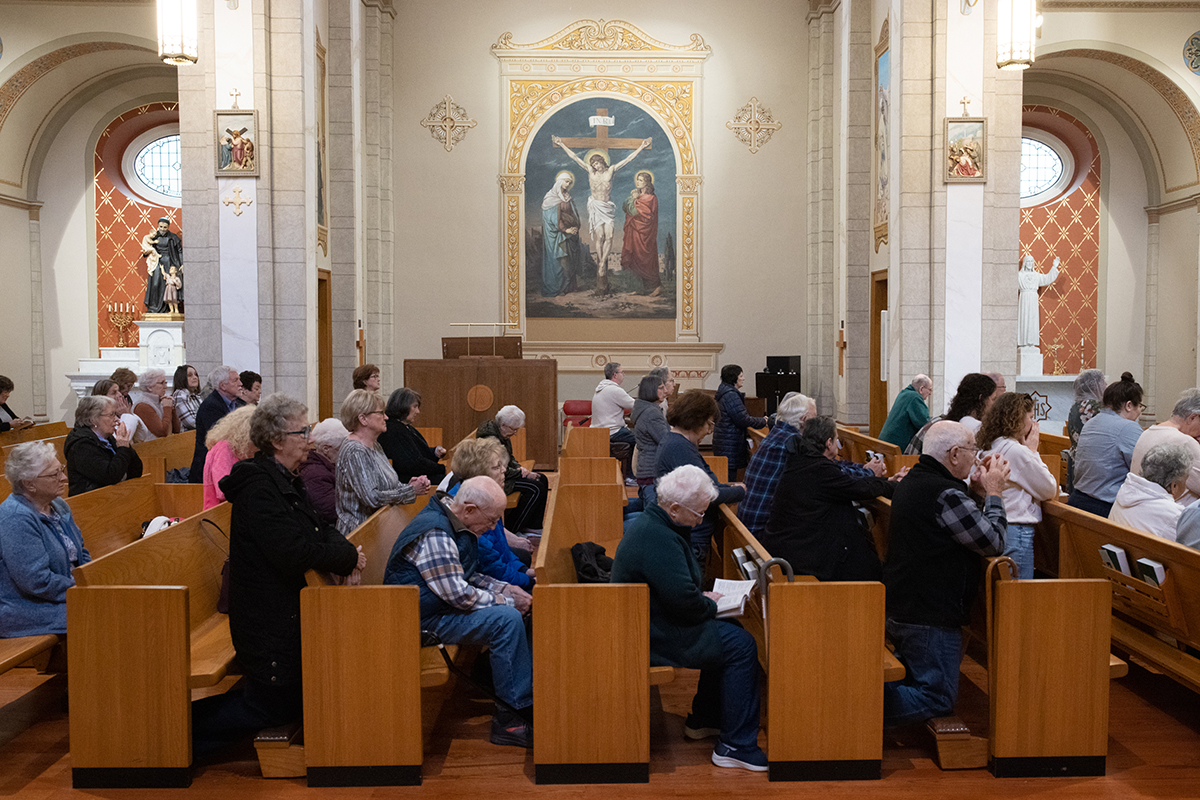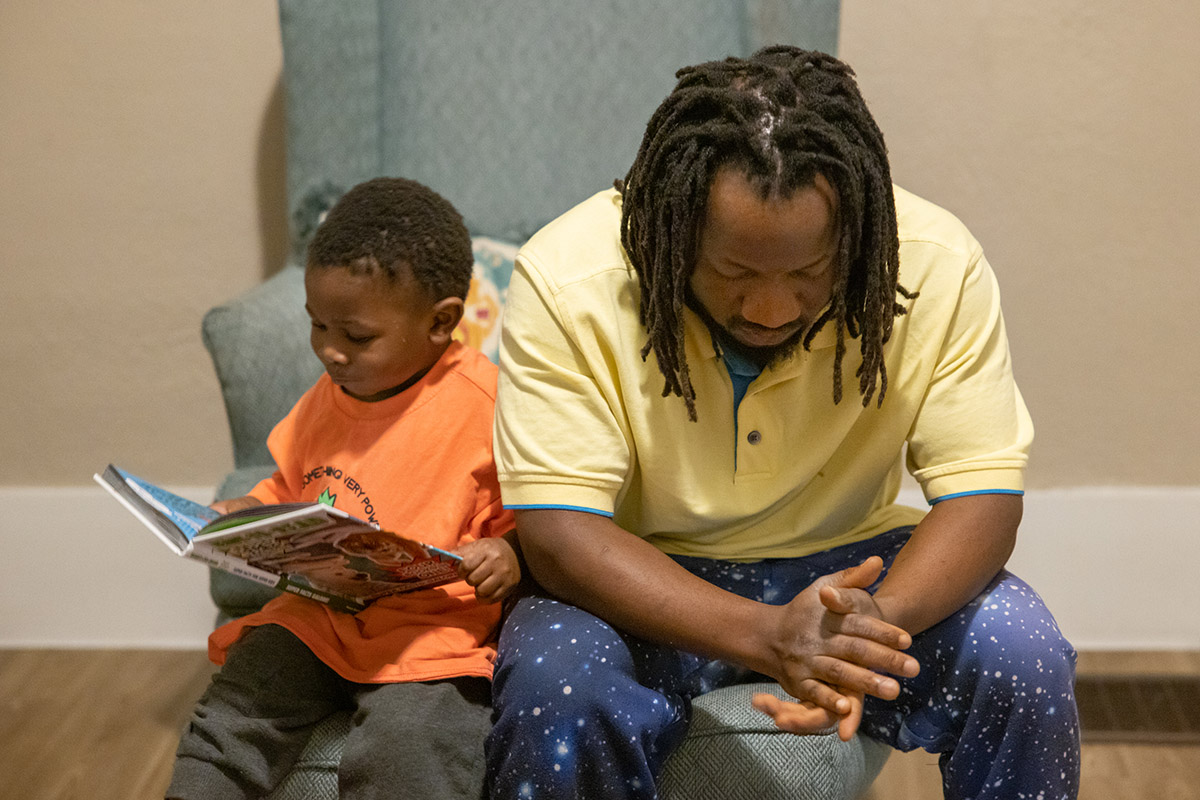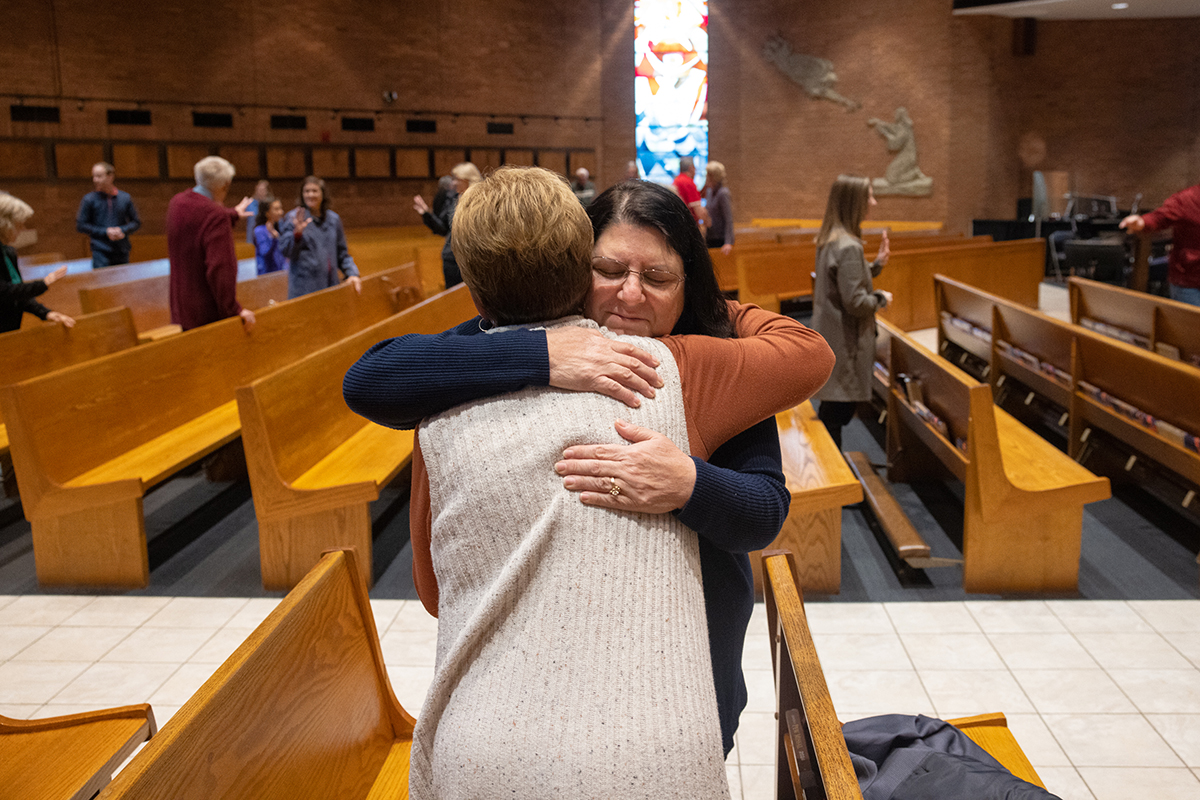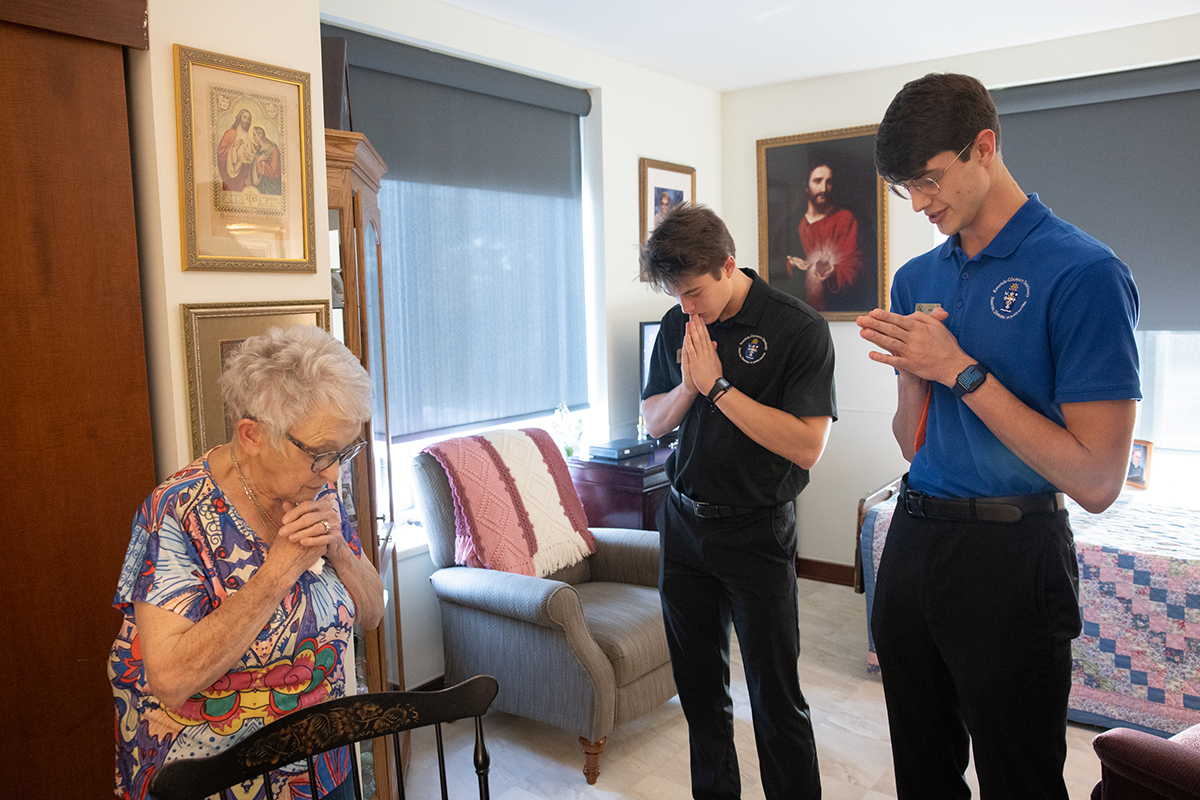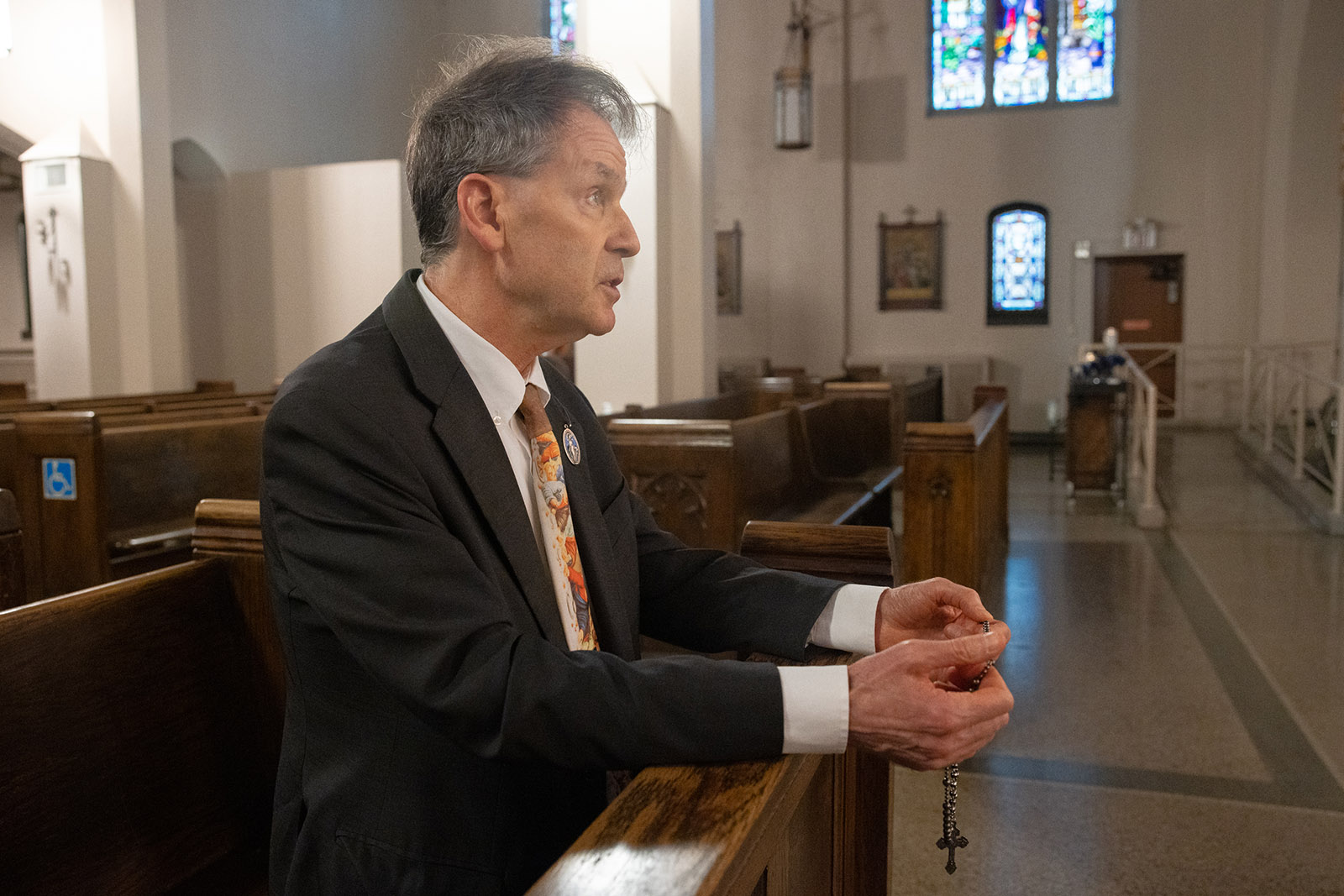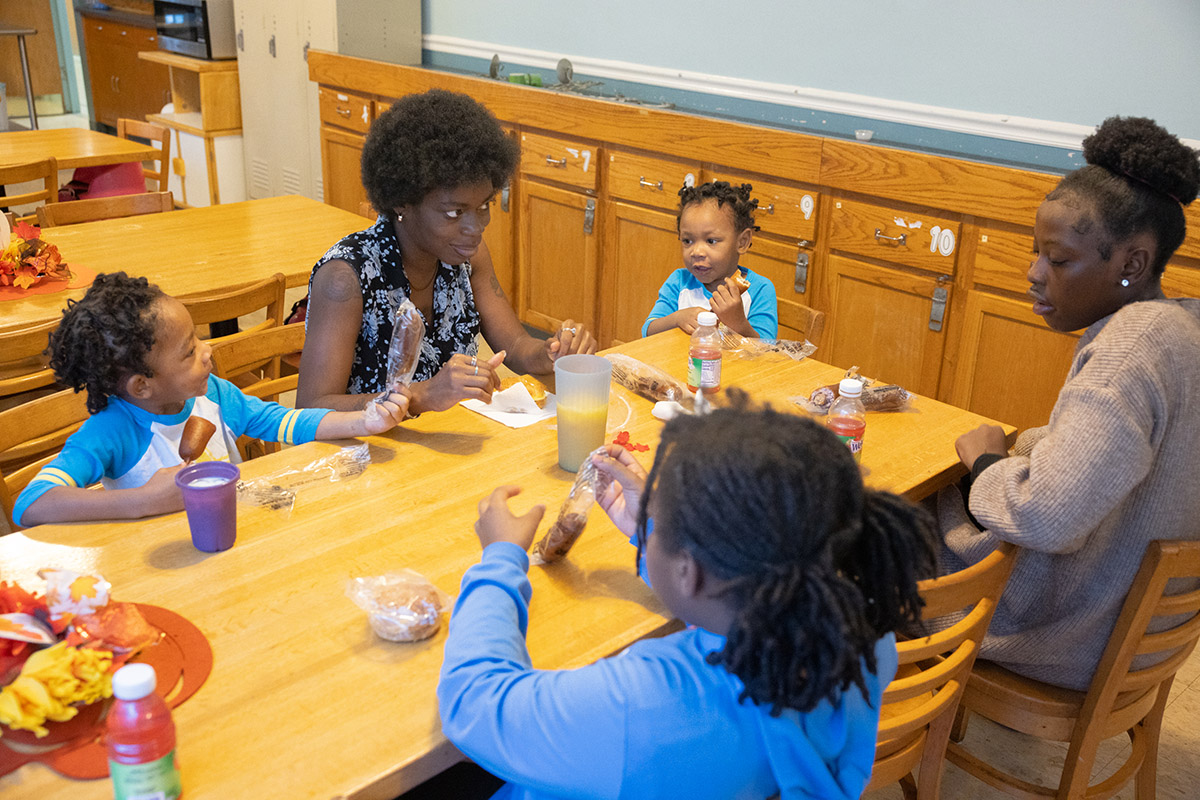Workers inspired by the Gospel find meaning in their labor
Workers inspired by the Gospel find meaning in their labor
Work honors the Creator’s gifts and the talents received from Him.
As the nation celebrates Labor Day Sept. 3, Catholics are invited to see the concept of work as a setting for rich personal growth and for giving glory to God. “Work can be a means of sanctification and a way of animating earthy realities with the spirit of Christ,” the Catechism of the Catholic Church says.
It also “is to be exercised within the limits of the moral order, in keeping with social justice so as to correspond to God’s plan for man,” the catechism adds. “Everyone should be able to draw from work the means of providing for his life and that of his family and of serving the human community.”
Three example of Catholics in St. Louis who exemplify the dignity of work follow.
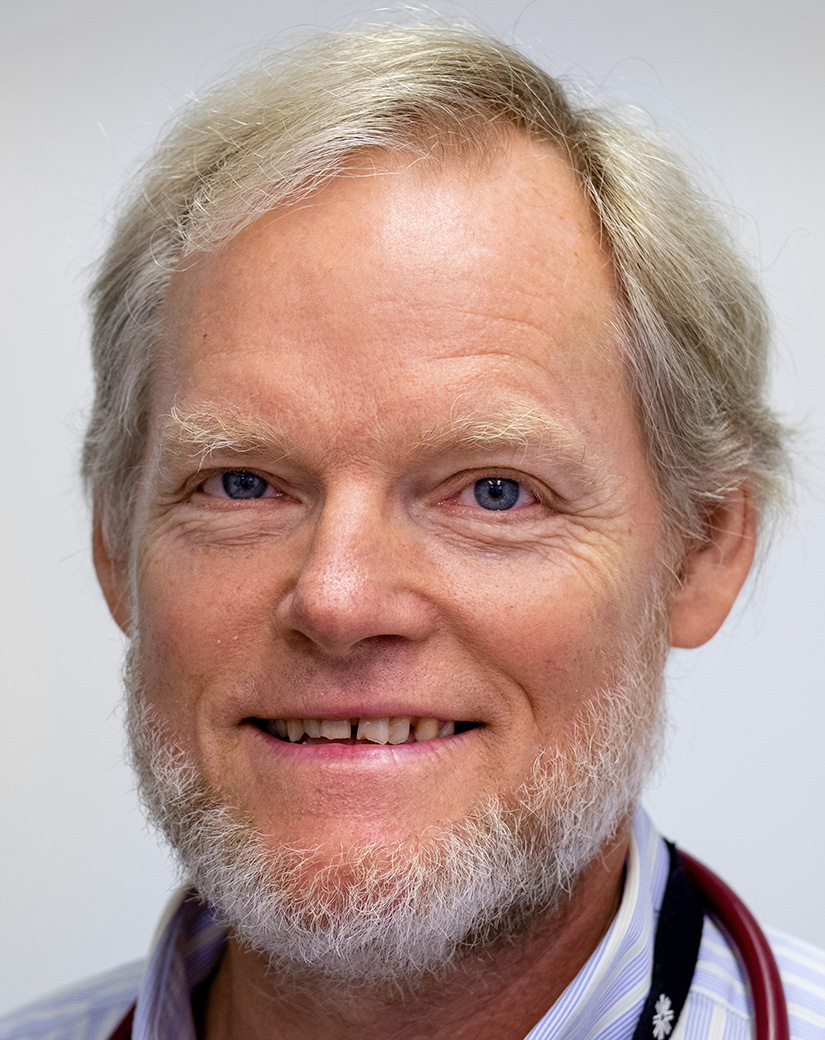
Dr. Tom Kernan
Kernan’s choice of a workplace is inspired by the Gospel.
“It’s all about my faith perspective and what’s the purpose of our lives,” Kernan said recently during a break in his busy schedule at a clinic that serves low-income residents in St. Louis.
Kernan works in the clinic setting “because I believe that every person is equally worthy of the opportunity to get their important needs met. That flows from an essential human dignity as we are created and loved by God. It’s always been important to me to work in a setting that does not turn people away because they do not have enough money,” he said.
Kernan completed his family practice residency at Cook County Hospital in Chicago. He joined Grace Hill Health Centers (now Affinia Healthcare) in 1989. Affinia offers affordable primary and preventive health care services, with 88 percent of its clients having incomes below the federal poverty guidelines.
Kernan uses a loving presence along with his knowledge and skills to provide relief to people who are having a difficult time. His goal is for them “to have less suffering and more joy,” he said.
“I’m pretty jazzed about my work,” he said. “I get up grateful for the opportunity to be able to work in this setting with questions like ‘What can I do to help?’ I have multiple opportunities throughout the work day to be helpful, and that’s very satisfying.
Kernan was trained in conventional medicine and has pursued holistic, or natural medicine. The thrust of his work is to help a person figure out what nurtures their mind, body, spirit or what causes excessive harm.
A parishioner at St. Cronan in south St. Louis, Kernan and his wife recently celebrated their 30th wedding anniversary. “It’s good for me to be connected with a spiritual community that’s passionate about the Gospel and engaged with our society and social justice,” he said.
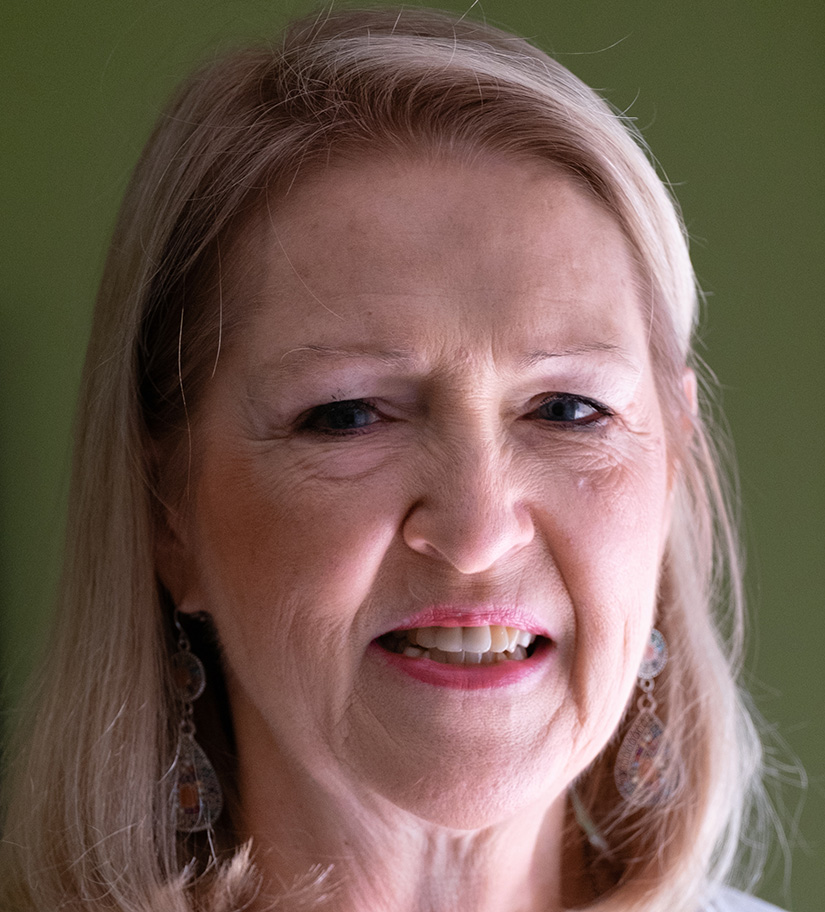
Angie Suellentrop
A retired speech therapist, a member of Opus Dei and a parishioner at St. Justin Martyr Parish in Sunset Hills, Suellentrop offers the work she does each day — in the home, part of a hobby or volunteer effort — to God. The message of Opus Dei, a personal prelature founded by St. Josemaria Escriva, is the sanctification of ordinary work and the universal call to holiness.
“You look at what is going on in your day, the activities you have and you find God in those daily duties,” she said. “It motivates the way I look at my day, how I accept the pleasant and unpleasant things. I relate everything back to Him. And realize that whatever is happening is His will for me.”
It’s important each day to check in with God and ask for His help, Suellentrop added. She strives to do her work well, offer it up to the benefit of other people and “being the grace to people that my work can bring.”
The approach has helped her remain calm and realize that some good comes from everything. “I’m constantly struggling to work toward that goal of holiness right where I’m at” and realizing “we’re always in the presence of God,” Suellentrop said.
Among other things, she’s a contact person for Opus Dei in St. Louis, a member of the St. Justin school board and busy with grandchildren. “It doesn’t matter what kind of work we do,” Suellentrop said. “We have the opportunity no matter what we’re doing to turn everything over to God and seek Him in our everyday work.”
That involves enjoying other people, helping and encouraging them, making friends with everyone and showing the positive aspect of having God in your life, Suellentrop said.
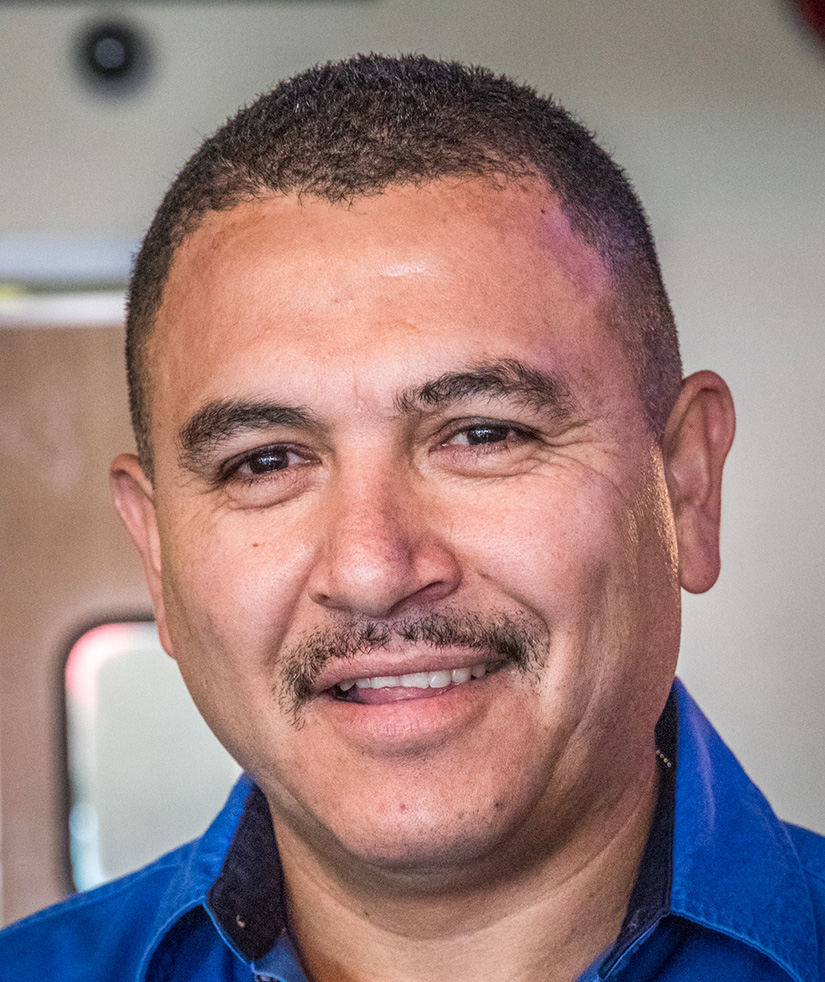
Rafael Ruiz
Ruiz enjoys having a job where his hours are flexible so he can stop in church during the day.
He and his brothers opened El Agave Mexican restaurant in St. Charles in 2007.
Owning a business, especially a restaurant, is challenging, and Ruiz relies on his faith. In the past year, he ran into some struggles and “I got an answer from God,” he said. “I feel like God was there with me when I needed Him.”
He looks back just at the past 20 years and sees things that have happened with business fluctuations — “well, nothing is perfect,” he said, “but I always feel that God is with me all the time.”
He makes sure to say “God bless you” to people. He’s happy to tell them he believes in God and enjoys his Catholic faith.
Before moving to the St. Louis area, Ruiz lived in California and didn’t belong to a parish there. But he found Our Lady of Guadalupe Parish in Ferguson — about a 25-minute ride from his home in St. Peters — and he established roots there.
Married with two children, Ruiz decided to keep attending Mass at the parish with his family even after other parishes added Masses in Spanish. “I feel most comfortable there,” he said. “The people work in one spirit.”
In many cases, poverty results from a violation of the dignity of human work, either because work opportunities are limited (through unemployment or underemployment), or “because a low value is put on work and the rights that flow from it, especially the right to a just wage and to the personal security of the worker and his or her family.”
>> Dignity of work
The U.S. Conference of Catholic Bishops explains Church teaching on the dignity of work and the rights of workers, based on Scripture. The economy, the bishops state, must serve people, not the other way around. “Work is more than a way to make a living; it is a form of continuing participation in God’s creation. If the dignity of work is to be protected, then the basic rights of workers must be respected — the right to productive work, to decent and fair wages, to the organization and joining of unions, to private property, and to economic initiative.”
St. John Paul II in his encyclical “On Human Work” (“Laborem Exercens” no. 9) also discussses the dignity of work:
“Work is a good thing for man — a good thing for his humanity — because through work man not only transforms nature, adapting it to his own needs, but he also achieves fulfillment as a human being and indeed, in a sense, becomes ‘more a human being.’”
>> Scripture is clear about the importance of work.
• The Lord blesses our work so that we may share its fruits with others (Deuteronomy 14:28-29)
• Practice integrity in your work (Luke 3:10-14)
• God settles man in the garden of Eden to cultivate and care for it (Genesis 2:15)
• And whatever you do, in word or in deed, do everything in the name of the Lord Jesus, giving thanks to God the Father through Him. (Colossians 3:17)
• Those who become rich by abusing their workers have sinned against God (James 5:1-6)
>> Opus Dei message
Opus Dei, a personal prelature of the Catholic Church, aims to foster among Christians a life fully consistent with their faith in the middle of the ordinary circumstances of their lives and especially through the sanctification of their work — opportunities for drawing close to Christ and making Him known to others.
Sanctifying work, the prelature explains, “means to work with the spirit of Christ, to work competently and ethically, with the aim of loving God and serving others, and thus to sanctify the world from within, making the Gospel present in all activities whether they be outstanding or humble and hidden. In the eyes of God what matters is the love that is put into work, not its human success.”
For information, visit www.lindellstudycenter.org (women) or www.wespine.org (men).
Work honors the Creator’s gifts and the talents received from Him. As the nation celebrates Labor Day Sept. 3, Catholics are invited to see the concept of work as a … Workers inspired by the Gospel find meaning in their labor
Subscribe to Read All St. Louis Review Stories
All readers receive 5 stories to read free per month. After that, readers will need to be logged in.
If you are currently receive the St. Louis Review at your home or office, please send your name and address (and subscriber id if you know it) to subscriptions@stlouisreview.com to get your login information.
If you are not currently a subscriber to the St. Louis Review, please contact subscriptions@stlouisreview.com for information on how to subscribe.

